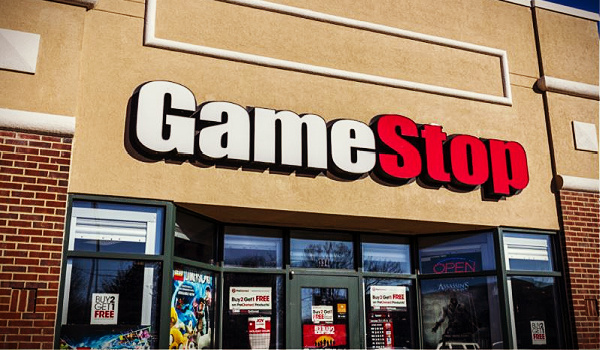For Sander Ressler, Managing Director of Essential Edge Compliance Outsourcing, a compliance supervision consultancy for the wealth management space, the Reddit-fueled surge in GameStop’s share prices towards the end of January was a memorable time for his firm.
“My phone started ringing off the hook, with some calls from in-house counsel and compliance executives with wealth management firms, but mostly from lawyers who represent retail investors,” said the Florida-based compliance and regulatory affairs expert.
“There were retail investors who gambled and won big on GameStop stock, but there were also many individual investors who racked up huge losses because trade execution and margin liquidations didn’t work as seamlessly or quickly as expected.”
Investors singed by GameStop stock are now lawyering up, even as financial services industry regulators begin to scrutinize the affair more closely. As the dust gradually settles, new risks and opportunities for the fintech wealth management space are emerging.
Mind the Digital Compliance Gaps
Robert Cruz, Vice President of Information Governance at leading regtech giant Smarsh, notes how the latest market disruptions spotlight digital communications compliance risks that had already been accelerating for wealth management firms, thanks to the pandemic-driven mass migration to remote work models.
“Remote professionals now can have nearly unfettered access to an unlimited number of collaborative, conferencing, and mobile access. Many of these tools may be familiar from their personal lives, but might be totally inappropriate for use by employees of an SEC or FINRA regulated firm.”
While the recent issues have centered on Reddit, Cruz said, “This could have just as easily happened on Signal, Telegraph, HouseParty, Marco Polo, WeChat or WhatsApp. And, it could have been any other form of employee misconduct, whether that be sharing of sensitive information, leaking intellectual property, or other collusive behavior.”
Historically a labor-intensive and capital-intensive function, compliance departments in wealth management firms have generally scaled up personnel in tandem with each increase in new supervision and surveillance obligations.
But traditional solutions may no longer be economically feasible in the post-GameStop new normal.
Cruz notes that many wealth management firms “are stretching the limits of human-centric review of lexicons to spot infractions.” The solution, according to Cruz, is the use of advanced analytics and content surveillance technologies that can identify problematic behaviors and actors on an accurate, scalable and cost-effective basis.
Automation Differentiation?
The GameStop-Reddit affair potentially increases the urgency for not just advanced digital communications compliance technologies, but also the need to develop and adopt more compliance-related workflow automation solutions.
This is due in no small part to the patchwork mix of proprietary, legacy and new third-party technologies that exists across the wealth management space. Many of these disparate elements of a wealth management firm’s digital ecosystem simply don’t connect with one another seamlessly, including regtech solutions.
Marc Butler, President of Skience, a provider of workflow automation consulting and solutions for financial services businesses, emphasizes that “automated compliance solutions are the best defense that wealth management firms have when it comes to protecting their advisors, their investors and themselves.”
An automated compliance solution, according to Butler, would more easily identify financial advisors who are recommending unsuitable investments in highly speculative securities, empowering IBDs and RIAs to remain ahead of the regulatory curve.
Pushing Back on Technophobia
The events of late January have also sparked concerns among independent financial advisors that their firms could become much more restrictive in the technologies they are allowed to use, from digital marketing and communications, to digital planning and investing resources.
Conor Delaney, CEO of Good Life Companies, an independent hybrid RIA with 200 licensed financial professionals and $6 billion in assets, notes that digital tools are more important than ever, and that financial advisors need to partner with “a nimble, independent RIA that understands technology is an asset, not an uncontrolled liability.”
According to Delaney, the lesson for wealth management firms shouldn’t be to limit client access to buy or sell specific securities. While Delaney agrees that technology brings retail investors “closer to erratic trading, not responsible trading,” firms need to embrace that the best approach is to align trained financial advisors and cutting-edge technologies.
“Having the trained financial advisor as the overlay partnering with great technology is key, because the advisor can tell you things that the technology cannot. Robinhood is an order taker, not a financial psychologist.”
“Having access to great tech while being on the psychologist’s couch, getting unbiased advice, is a far better scenario than going at it without the guidance necessary to make good investment decisions.”
Tempest in a Teapot?
Certain industry veterans caution against overplaying the regulatory and compliance implications of the GameStop-Reddit affair, and the impact on wealth management fintech.
Recalling the conversations he had with attorneys and compliance executives at the end of January, Sander Ressler emphasizes that “the GameStop frenzy is primarily an issue for firms that are active in the self-directed channel. Some large IBDs and RIAs enable online, self-directed trading, but many do not.”
Ressler also notes that the investors who were positively or negatively impacted were generally not the typical clients of an experienced financial advisor who are relying on long-term financial plans and packaged financial products, such as mutual funds and ETFs, as the mainstays in their portfolios.
“We’re talking about clients who are a combination of day traders, Millennials and people who didn’t have a financial plan weren’t actively engaged with a financial advisor, and got swept up in the mania.”
While admitting that large IBDs and RIAs that were actively planning to roll out self-directed online trading capabilities will need to revisit such strategies, Ressler said, “More than anything else, the recent GameStop issue spotlights a question that wealth management firms have been struggling with for years: How much risk do you let a client take on, before you deem them to be committing financial suicide and save them from themselves?”
“We’re talking about a very big gray area that no level of technology-enabled innovation by itself can address.”







